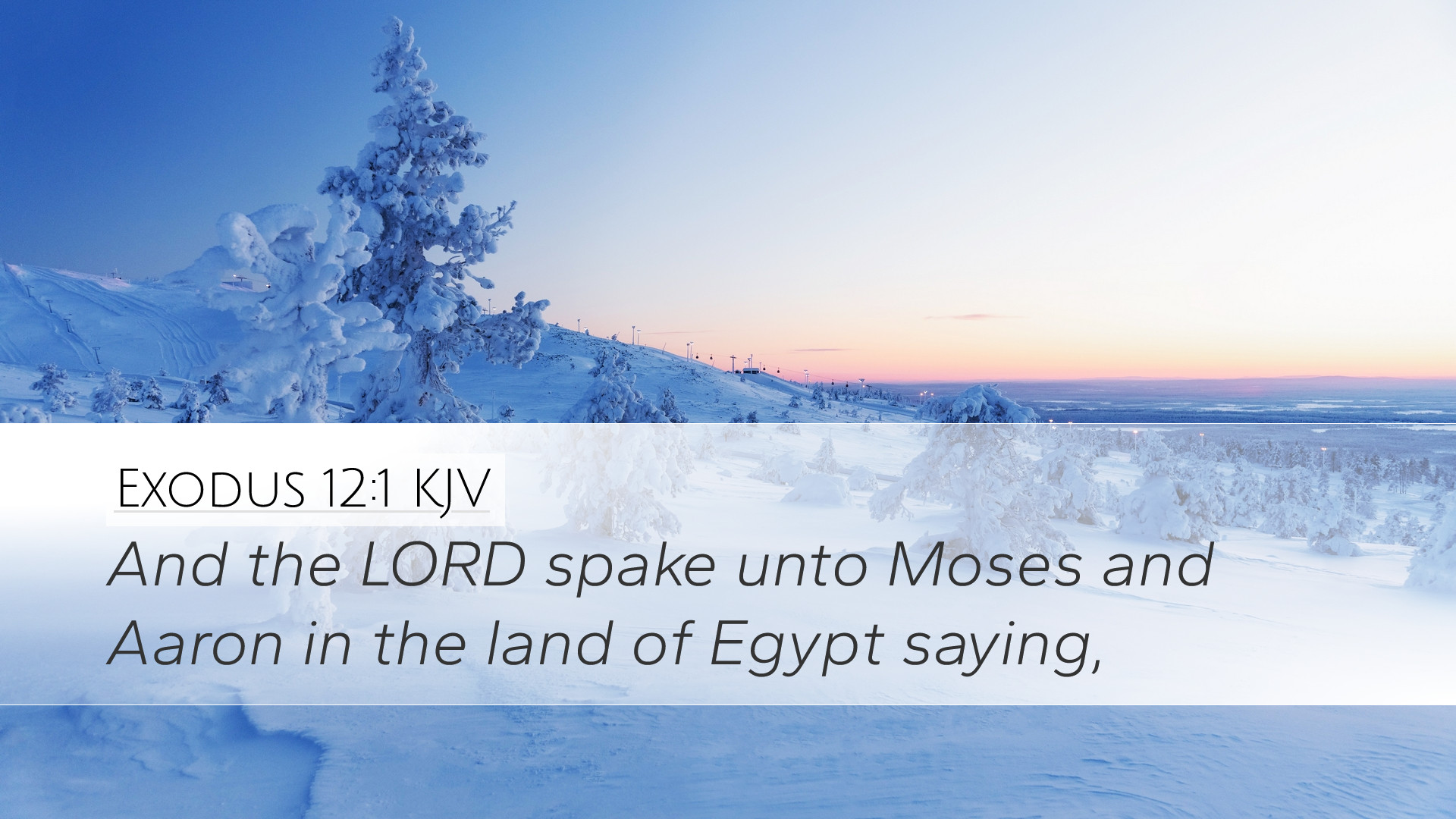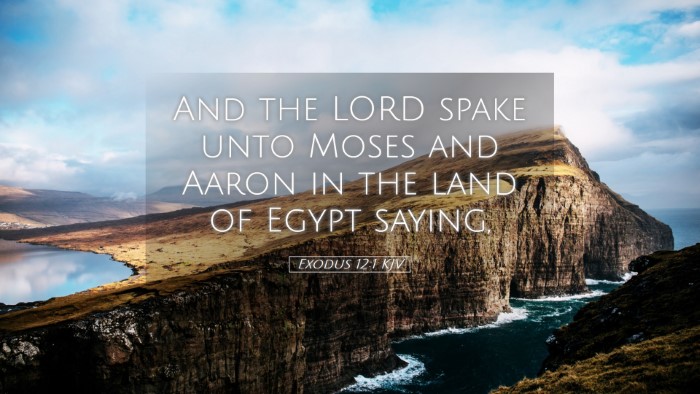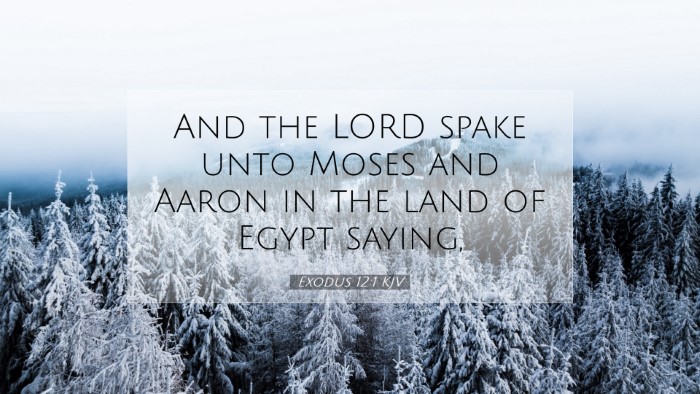Exodus 12:1 - A Commentary
Verse: "And the LORD spake unto Moses and Aaron in the land of Egypt, saying," (Exodus 12:1, KJV)
Introduction
The opening of Exodus 12 marks a significant moment in the narrative of Israel's deliverance from Egypt. This chapter is pivotal, serving as the preface to the Passover and the subsequent liberation of God's people from slavery. The verse encapsulates God's initiative in communicating His salvific plan through Moses and Aaron.
Insights from Matthew Henry
Matthew Henry's commentary emphasizes the sovereignty of God in delivering His people. He notes that God speaks, asserting His authority, and that His instructions are clear and purposeful. Henry highlights that the directive to Moses and Aaron underscores the importance of leadership in guiding the people to fulfill God's commands.
Henry also identifies the context—a time of intense suffering for the Israelites—showing that God's revelation comes as a response to their cries. His commentary reinforces the theme of God's faithfulness to His covenant promises even in dire circumstances.
Insights from Albert Barnes
Albert Barnes elaborates on the theological implications of God speaking directly to Moses and Aaron. He points out that this divine communication signifies the establishment of a new phase in Israel's history, marked by God's intent to deliver His people. Barnes draws attention to the covenantal relationship depicted through God's dialogue, illustrating the mutual responsibilities of God and Israel.
Additionally, Barnes comments on the importance of the Jews’ obedience to God's commands, demonstrating that divine intervention in their lives is contingent upon their faithfulness to His statutes. He stresses the necessity of hearing God's voice and responding with action, thus laying the foundation for the forthcoming Passover event.
Insights from Adam Clarke
Adam Clarke offers a comprehensive view of cultural and historical context surrounding Exodus 12:1. He highlights the cultural significance of the new moon's appearance and its correlation to the starting of months in the Israelite calendar. Clarke asserts that God is not only instituting a pivotal event but also reorienting the Israelites' understanding of time and seasons as it pertains to worship and remembrance.
Clarke also delves into the accuracy of God's timing in the deliverance, showcasing how this divine scheduling reflects God's perfect plan for redemption. He urges readers to recognize that God operates within human history, aligning events with His purposes and calling His people to cooperate through obedience.
Theological Reflections
This verse serves as a profound illustration of several key theological themes:
- The Sovereignty of God: God’s direct communication to Moses and Aaron affirms His ultimate authority and control over the events unfolding in Egypt.
- Covenant Relationship: The dialogue emphasizes the need for relationship and responsiveness between God and His chosen leaders, highlighting the responsibilities that come with divine calling.
- Divine Revelation: God's instruction initiates a critical event in salvation history, revealing His plans not only for Israel but also as a foreshadowing of the ultimate redemption through Christ.
Application to Pastoral Ministry
For pastors and leaders, Exodus 12:1 serves as a reminder of the importance of being attuned to God's voice amid challenging circumstances. Just as Moses and Aaron were tasked with orchestrating God’s plan for deliverance, church leaders are called to discern the direction and timing of God in their ministries.
Moreover, the necessity of obedience illustrated here reminds church leaders to encourage their congregations to respond actively to God’s commands, cultivating a culture of responsiveness and faithfulness.
Conclusion
Exodus 12:1 is not merely a historical note; it is a foundational verse that encapsulates core themes of divine authority, fellowship, and the unfolding plan of redemption. The insights from public domain commentaries by Matthew Henry, Albert Barnes, and Adam Clarke offer deep reflections for pastors, students, and scholars alike, urging all to heed God's call for obedience and leadership in a world that longs for deliverance.


